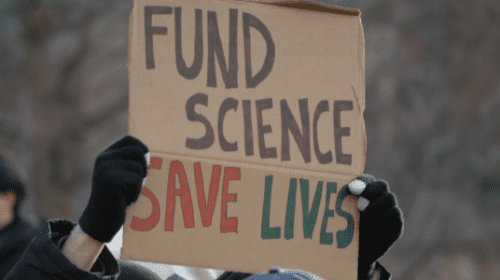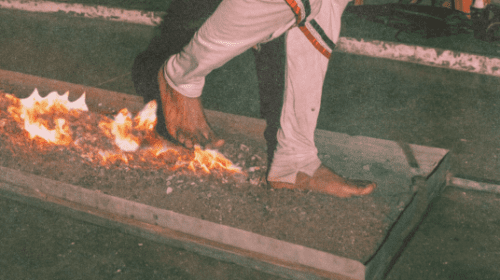Valentine’s Day—do you love it or hate it? Or are you somewhere in between? If you’re in recovery, your answer might differ from someone who hasn’t struggled with drugs or alcohol.
The “day of love” holds a strong significance for many people. It’s the one day per year we’re supposed to shower our partners and those closest to us with gifts and sweet treats while we drink fine wines and speak kind words to each other. Actually, we should be doing this year-round, right?
Holidays, in general, can be challenging for sober folks, especially those new to a life in recovery. But with some planning and intention, you can successfully celebrate a sober Valentine’s Day. Keep reading for 20 creative sober date ideas!
Valentine’s Day Tips for the Newly Sober
We are all for self-love and self-care in sobriety—because being sober is all about improving yourself and creating your best life. And we think you should do something nice for yourself on Valentine’s Day, too! But there’s more to sober self-care than bubble baths and fancy mocktails.
Don’t underestimate the power of a good night’s sleep. Yep—getting good sleep is a form of self-care that most people don’t prioritize, but it can greatly impact your mood and overall well-being the following day. Create a cozy bedtime routine, switch off the screens early, and let yourself unwind for a solid night’s rest.
Self-care is all about nourishing your mind and body however that looks for you. Whether you’re into meditation and mindfulness exercises or your self-care looks more like ten minutes of quiet alone time during your busy day, prioritizing that time is vital. Establish a routine for the things that bring you joy. Make it a habit to indulge in what makes you feel good. And don’t forget to spend time with people you enjoy being around. Support is key, especially in recovery.
Finally, give yourself a break once in a while, okay? Nobody’s perfect. If you fall off the self-care train, you can always hop back on the next day. Like recovery, self-love is a journey, and you get to take the lead.
Navigating social situations without alcohol
Peer pressure doesn’t look the same for everyone. In a perfect world, our friends and family would decide that sobriety is the life for them, but unfortunately, it’s not that simple, and many folks in recovery may have to be around the one thing we’re trying to stay away from.
If you’re hanging with your friends this V-Day, let them know your comfort levels around alcohol. It’s OK if being around them doesn’t feel right to you. You get to decide.
Dealing with triggers and temptations
For most people, celebrations mean there’s a chance that alcohol or drugs might be present. It’s unfair, but this is something you’ll have to get used to for the rest of your life, especially if your substance was alcohol.
Use your sobriety toolbox to handle triggers and temptations when celebrating Valentine’s Day. Have a go-to person you can call or text. Distract yourself away from the trigger. Get a snack or an NA beverage to keep you busy. And leave the situation if you think you need to.
Creating sober connections
Positive relationships can have a beneficial impact on your recovery. Making connections with other sober people is crucial. There’s just something about talking to someone who “gets it.” Consider joining a support group or see if any sober Valentine’s Day events are happening in your area.
The Impact of Sobriety on Relationships
Recovery goes beyond the person who stops using substances. Addiction is a family disease. It doesn’t discriminate, and it interrupts a person’s whole life—including relationships with friends and family.
In sobriety, we learn how to be a good partner, among other skills. That’s why many treatment programs have a family therapy component and other programming to benefit the entire family affected by addiction.
Many people who struggle with addiction have past experiences that led them to cope using drugs or alcohol. In recovery, the goal is to learn how to manage our emotions without turning to negative behaviors.
This self-work in recovery can positively affect how the sober person connects with those closest to them. And it can end up improving our relationships, too.
Shared priorities and goals
The positive life changes you make in recovery can cause a ripple effect for those around you if everyone’s on board with evolving together.
Being on a shared journey to bettering your lives strengthens your bond and brings you closer. However, this isn’t always the case. Recovery changes people, ideally for the better, and some of those toxic relationships may no longer serve a purpose for you. Be mindful of how your recovery impacts your relationships; if you need to let some go, that’s OK.
Connection and trust
In sober relationships, communication is critical. Because there’s no longer a cloud of drugs or alcohol, you can connect with your loved ones on a deeper level.
Many things make up a successful relationship—trust is a big one. Choosing recovery shows your commitment to improving your life and how you impact the lives of those around you, which builds their trust in you.
Sobriety also shows your reliability. Although slow at first, as you continue through recovery, you prove to people that they can depend on you, creating a more stable and secure environment for everyone.
Rediscovering intimacy
Without alcohol as a distraction, intimacy becomes simpler. Sobriety lets you uncover and appreciate moments of previously overlooked connection with your partner. If you let yourself be present in the moment, you can enjoy these moments without outside influences, such as drugs or alcohol.
But it’s not easy. Intimacy is an immense scary feeling for sober folks because we’re not used to it without some kind of substance numbing ourselves. In sobriety, there are no more blurred lines. You get to feel unaltered emotions. And the more you engage in intimate partner activities, the easier it becomes to let your guard down and embrace that emotional side of you.
Creative and Alcohol-Free Date Ideas
Contrary to popular opinion, sober does not equal boring. Many people in recovery will tell you they have way more fun now that they don’t use drugs or alcohol—because they are actively participating in their lives for once.
Get creative with Valentine’s Day ideas! Here’s some of ours:
- Pack a picnic and go hiking somewhere you’ve never been
- Spend time at an animal shelter
- Find an arcade in your area for some old-school fun
- Stroll a bookstore and learn something new
- Explore a local museum or nature center
- Find a DIY craft online and try making it yourself
- Walk down memory lane by visiting memorable places
- Attend a local comedy show or host a comedy night at home
- Have a breakfast date at a restaurant you love
- Go plant-shopping and learn how to care for it
- Dance the night away at a concert or music performance
- Join a cooking class in-person or online
- Order takeout and watch your favorite romantic comedy
- Stay in and cook a meal together, try a new dish
- Break out of an escape room together
- Find volunteer opportunities in your community
- Try a new sporting activity like pickleball or snowshoeing
- Get competitive with a new board game you’ve never played
- Browse local thrift stores to find your newest treasure
- Take an art class together or buy supplies and make your own
Alcohol-Free Drink Ideas
Not drinking alcohol can be a fun reason to embrace your creative side. Many NA options exist today, so you can likely find beverages to enjoy right in your local grocery store. Don’t overthink it—they don’t have to be fancy!
You can even try making some mocktails at home. Here are four Valentine’s Day recipes from This Naked Mind to get you started. And check out Some Good Clean Fun’s website for tons of alcohol-free drink recipes.
If NA drinks aren’t your thing, don’t worry; stick with what you’re most comfortable with. When in doubt, iced tea, pop, or sparkling water with a lime works fine!
Why celebrating without alcohol matters
What’s the big deal? It’s just alcohol, right? Yes, but alcohol is an addictive drug that clouds our thinking. Celebrating without it brings greater clarity and creates an authentic moment where everyone is genuinely present.
Celebrating a sober Valentine’s Day is about creating memories that you’ll remember without the effects of drugs or alcohol. So, while it might seem small, going without alcohol can make a big difference in how people experience and remember the day.
Flying Solo on Valentine’s Day
Recovery allows us to reflect on all we’ve been through and how we got to where we are now—that’s a reason to celebrate! Use Valentine’s Day as an opportunity to pamper yourself. You deserve it.
If this day makes you feel lonely, connect with your sober community and other people who are important to you.
Valentine’s Day is just another day in your year. If you don’t have that special someone in your life, use the day to celebrate yourself. Think of this one day as an opportunity to appreciate the beautiful life you’re creating.

























